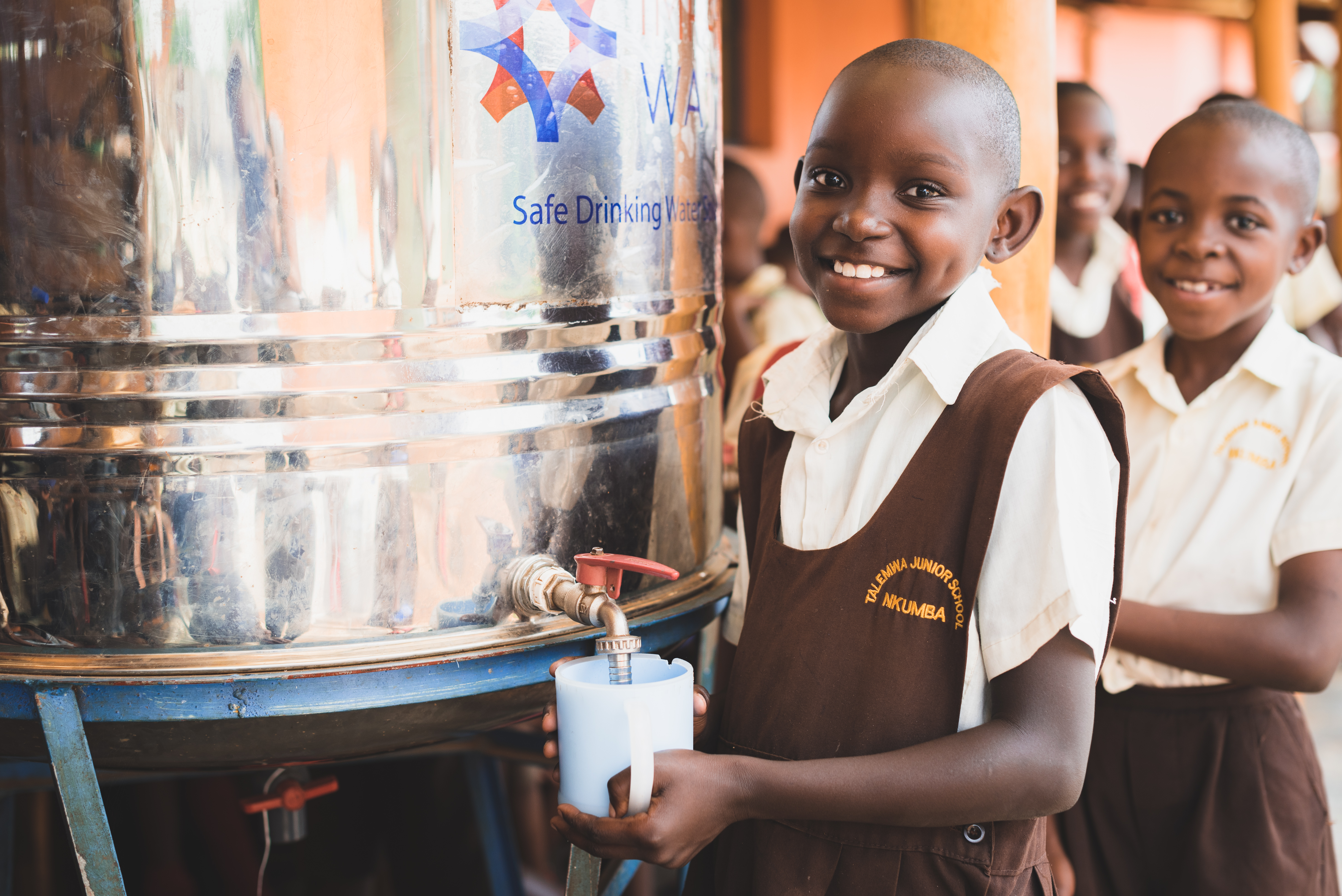The Mibelle Group plants in Buchs, Frenkendorf, Sarreguemines (France) and Bradford (UK) were recently certified by the climate protection partner myclimate. "The award of the impact label "Engaged for Impact” is confirmation of our long-standing, consistent focus on sustainable production," says Claudia Regenass, Head of Sustainability at the Mibelle Group. The four production sites generate a total of around 12,000 tons of CO2 per year. The aim is to further reduce this volume through various sustainability projects at all locations. Where CO2 emissions cannot be completely avoided, the Mibelle Group takes responsibility for these emissions and contributes to climate protection. These contributions go towards myclimate's carbon offset project for clean drinking water in Uganda, East Africa.
Drinking water project for schools and households in Uganda
In Uganda, clean drinking water is not a matter of course. 40% of the population boil their water, and an even larger proportion do not treat the water at all, which can lead to illness and death. The Mibelle Group supports with its climate protection contributions to a project by myclimate, which aims to provide poorer households and institutions such as schools in Uganda with new technologies to purify drinking water. The resulting reduction in the consumption of non-renewable firewood and charcoal reduces CO2 emissions and also has a positive impact on the living conditions and health of thousands of people.
The project promotes access to various water filter technologies. A family can purify two to six liters of water per hour with a water treatment system. This saves them money because they no longer have to boil water and time that they would otherwise have to spend collecting or buying firewood.
In schools, a drinking water treatment system can treat 457,000 liters of drinking water per year. Thanks to clean drinking water, pupils fall ill less often and can attend school more regularly.









